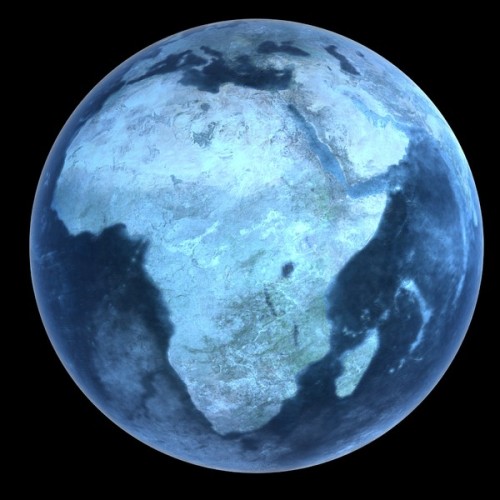
What would happen if the Sun disappeared?
Stars don’t just go out, so there’s no chance of the sun just turning off. A cloud of some sort of thick interstellar gas could conceivably suddenly blot out the sun, but where such a cloud could suddenly come from defies reason, again, astronomers haven’t noticed any stars in the sky suddenly being blotted out by clouds of gas. So for the sake of argument we are simply going to postulate that in some unknowable way, the Sun simply vanishes one day. What would be our fate?
In short: We’d be hosed. The actual details might be somewhat variable, but it’s still pretty easy to predict. How much does the temperature drop between sunset and sunrise? If the Sun vanishes, it will simply keep dropping at the same rate or an even higher rate as the water freezes out of the atmosphere and Earth loses its cloud cover. At high elevations and arctic areas this means within days the temperature would be several hundred degrees below zero. In the tropics it might take a week or longer, but it’s safe to say that in at most two weeks the entire globe would have cooled to hundreds of degrees below zero, and all surface life as we know it would be impossible. On the plus side, our planet retains heat rather well, so we wouldn’t freeze to death instantly. Also, as light from the Sun takes eight and a half minutes to reach us, we’d have a final few moments of glorious sunshine before our planet was bathed in darkness.
If the sun disappeared, for eight-and-a-half minutes we’d have no idea that the sun had gone. We’d still see it – lingering, like a ghost – in the sky above Earth’s day side. As soon as the last of the sun’s light reached us – eight-and-a-half minutes after the sun itself disappeared – the sun would blink out and night would fall over the entire Earth.
If you were on Earth’s night side when the sun disappeared, you might not notice anything … at first. But then the night sky would begin to change. For example, if there were a full moon – which shines with reflected sunlight – its light would disappear a few seconds after the sun’s light blinked out. Over the course of several hours, the planets would wink out one by one, as they reflected the last of the sun’s light to us.
Not until that instant would Earth sail off in a straight line into space. Einstein’s special theory of relativity tells us that no signal in the universe – not even the tug of gravity – can travel faster than the speed of light – about 300,000 kilometers, or 186,000 miles, per second. Though free from the sun’s gravity, we’d be traveling at the same speed as before – about 18 miles, or 30 kilometers per second. So Earth would be traveling at the same speed as always into eternal night.
Would the Earth be lifeless? No. The Earth itself would remain warm from radioactive decay for billions of years, so microbes deep in the crust would survive. The oceans would freeze over, but they likely wouldn’t freeze solid. Tidal action, volcanism, and the aforementioned heat from the Earth’s core would likely keep some water liquid. Deep sea life, especially that around sea floor vents that don’t rely on the Sun, would very possibly survive or even thrive.
On the surface though, nothing. In fact most of the atmosphere would soon freeze and fall to the earth as snow. Different components would freeze out at different times, so there would be layers of colored snow. The atmosphere itself would also freeze and fall to Earth, leaving us exposed to the harsh radiation travelling through space.The almost airless sky would be brighter than the starriest night on Earth now. The Moon wouldn’t have phases but it would still be visible as a gray ghost hanging in the cloudless sky, dimly illuminated by starlight. In fact the Earth’s surface would likely be stunningly beautiful in a silent still way, like a frozen dream.
We wouldn’t be around to appreciate it though. Some humans might survive for awhile in deep shelters or nuclear submarines, but unless there were a lot of them in a well equipped base, their chances of long term survival would be almost nil. Still, if there was enough of a society left to support an industrial base, maybe humanity would survive. Nuclear power would last forever, and the entire Earth’s surface would be littered with useful artifacts, not to mention frozen food in one form or another.
Imported from Tumblr: http://rayegunn.tumblr.com/post/46901788148
No comments:
Post a Comment